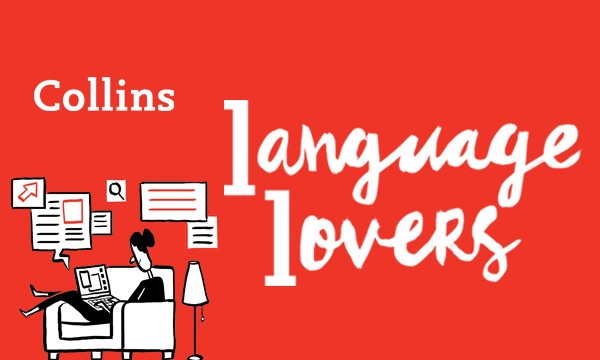Dear reader, we are honoured to welcome you back to the ton! Last time we spoke, we gave you 9 words to sweep you into the world of Bridgerton, and now, with season 3 streaming on Netflix, we thought it was high time to return to everyone’s favourite Regency-era romance and provide you with an updated glossary of essential Bridgerton vocabulary.
Because while Lady Whistledown’s Society Paper may keep you abreast of the latest twists and turns in this scandalous society, we need to make sure you’re able to keep up with the conversation. For example, do you know your trousseau from your pall-mall? Your debutante from your dance card?
Hurry, we have no time to waste, the season has already begun. Here are seven brand-new Regency-era words to add to your everyday conversation, for that extra bit of ✨spice✨. Pour yourself a fresh cup of tea and let’s begin our lesson.
Trousseau
Example: “I shall need fittings for the dress and my trousseau.”
If you’re an avid reader of historical fiction you may already be familiar with a trousseau. It’s an old-fashioned wedding tradition in which a bride would be provided with new clothing, jewellery, and other useful household items such as linen and plate, as part of her dowry. It comes from the Old French trousse, meaning ‘little bundle’. There has been some confusion over the meaning, as some interpret it as a fancy word for underwear, which probably would form part of a trousseau – but it is definitely not the only item.
Debutante
Example: “Lord Bridgerton has caught many a debutante’s eye.”
The ton is well known for its debutantes, but what exactly is a debutante? In Regency London, high society was the world which many of the most powerful and influential families orbited, and they were keen to ensure that their daughters were married to suitable young men. In this sphere, a debutante is a young, upper-class and (usually) rich woman who has ‘come out’ and is ready to mingle with eligible bachelors at suitably elite events. A particularly lovely debutante may also be known as ‘a diamond of the first water’.
Countenance
Example: “I do not believe that I have ever met such a lovely girl with such an ugly countenance.”
If there’s one thing 19th-century England did exceptionally well, it’s use a graceful turn of phrase. Take countenance for example. In modern society, if someone is unable to control their facial expression and has a habit of scowling, you might say they have RBF. In Regency England, you’d suggest that they fix their countenance. Countenance is about being aware of what your face is saying and being able to maintain a calm and dignified composure in refined circles. It originates from the Old French contenance, meaning behaviour, which itself comes from the Latin continentia, meaning restraint and control.
Dance card
Example: “Sorry, my dance card is full.”
A perfect way to dissuade a persistent suitor, this expression is unique to high society. And it’s not a metaphor. In this period, the various balls and soirees were planned to perfection, with a predetermined schedule of music and dances. Young women would quite literally have a card fixed to their wrist to keep track of their dances for the evening, as well as prevent too many dances with the same man, which may be deemed inappropriate. A full dance card is a sure sign that you’re a popular young lady.
Court
Example: “It is not a man’s appearance or title that will woo you. It is his mind and spirit that will court yours.”
There are many different kinds of court: legal courts, tennis courts, royal courts where attendees wait upon the monarch. But in Bridgerton, to court – or courting – is the act of pursuing a romantic relationship with the ultimate goal of marriage, typically conducted through formal visits, social interactions at appropriate events, and the occasional longing start in the company of others. There are many strict rules around propriety and decorum, so proceed carefully – ideally with a chaperone – to prevent ending up in Lady Whistledown’s Society Paper.
Snuff
Example: “Fresh snuff.”
One thing we all love about Regency-era England is its sheer elegance, even when it comes to vices. Who needs a vape when you can indulge in some snuff? A form of powered tobacco consumed by breathing quickly through the nose, inhaling snuff was an extremely popular habit in the 1800s which denoted wealth and sophistication. In fact, one of the greatest snuff lovers is Queen Charlotte herself (both the fictional and the real person) and she is often seen indulging on the show. Regular users might also treat themselves to a decorative snuffbox.
Pall-mall
Example: “You must not let the game of pall-mall dismay you.”
This word is a very important one to learn if you want to avoid a social faux pas. Pall Mall is a famous street in central London, and of course, a property in the UK version of Monopoly. However, if you were invited to pall-mall by a suitor, you’re actually being challenged to a lawn game. A delightful pastime invented by the French, pall-mall involves striking a ball of boxwood with a mallet to drive it through a raised iron ring, much like croquet.
Love learning new words via TV shows? We highly recommend you read 9 words to sweep you into the world of Bridgerton and The return to Westeros: the essential House of the Dragon glossary.
By Rachel Quin
Rachel Quin is a freelance marketer and copywriter with a love of language, books and cats.
All opinions expressed on this blog are those of the individual writers, and do not necessarily reflect the opinions or policies of Collins, or its parent company, HarperCollins.



